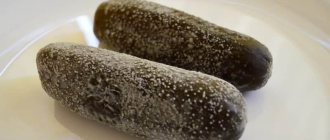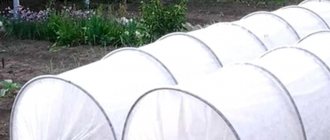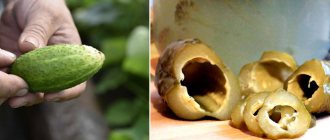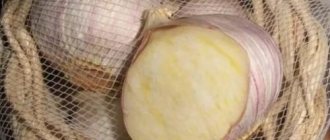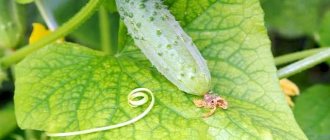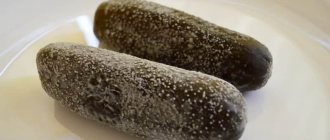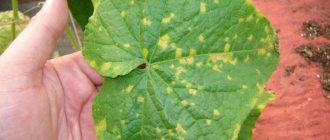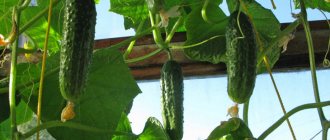Gardeners cannot imagine their plot without growing cucumbers. Popular love for their fresh aroma in salads and okroshkas and their traditional participation in winter feasts in pickled form has turned this vegetable into a daily addition to the family menu on weekdays and on holidays. But sometimes grown cucumbers become inedible due to the unpleasant bitterness of the fruit.
Photo: https://fb.ru/misc/i/gallery/66469/3121507.jpg
Reasons contributing to the appearance of bitterness in cucumbers
Cucurbitacin in cucumbers has beneficial properties - the substance protects the fruit from being eaten by animals. At the same time, its use reduces the likelihood of developing cancer. It is found in stems, leaves, pulp, and peel.
Increasing the concentration of cucurbitacin causes cucumbers to become bitter. This happens due to stress - lack of water, heat, too dense planting, excess fertilizer.
An unpleasant taste appears not only due to insufficient watering
For reference! Vegetables were imported from other countries and therefore the Russian climate is not always beneficial to them.
Therefore, cucumbers need to be grown properly and the development of stress must be prevented.
Watering
Cucumbers originally grew in the humid tropics, so they need plenty of water. In summer it does not always rain heavily, so the gardener needs to be concerned about independently moistening the soil. Doing this once a week is not enough.
The best option is 3 times a week, provided there is no rain. Without regular irrigation, cucumbers will grow, but they will be bitter. Therefore, you should not neglect watering.
Attention! Water for watering cucumbers should be warm, settled, preferably rain.
Overwatering is also dangerous - excess moisture leads to water accumulating in the soil, and this provokes rotting processes. Watering should be moderate, regular, and careful.
Fertilizers
Cucumbers can grow on any soil, but if there is a lack of nutrients, the harvest will be small. Today, gardeners have access to both organic and inorganic fertilizers. You can’t either overfeed vegetable crops or underfeed them.
It is better to apply fertilizers strictly according to schedule
If there is a lack of nutrients, the fruits become distorted and spoil, making them difficult to preserve. Selling such cucumbers will also not work.
Dense planting
In a limited area, summer residents try to fit a large number of crops. The dense arrangement of bushes leads to the fact that plants have to struggle for development and this harms the growth of the root system.
Important! It is worth following the recommendation on the interval between plantings. It wouldn’t hurt to make trellises.
If seedlings are planted densely, the fruits will not receive the required amount of light and this will negatively affect their taste.
Heat
Not everyone understands why cucumbers are bitter, because all growing recommendations were followed. At high air temperatures, the crop suffers and dies. Therefore, it should be placed in a slightly shaded area and watered twice a day with warm water.
Cucumbers in open ground: why they taste bitter
There is no consensus among gardeners about how to grow vegetables - in greenhouses or outside them. Each method has its supporters and opponents. Without a greenhouse it is difficult to create optimal conditions for growth. A gardener may not even know why cucumbers are bitter.
It is necessary to analyze the conditions of detention. For example, was there sufficient watering or was there too much watering? What fertilizing was on the schedule and whether it was enough to create nutritious soil.
Even a novice gardener needs to know why cucumbers grow bitter in open ground and what to do about it. These fruits cannot be used in salads, but they are suitable for pickling. Therefore, you don’t have to worry about the harvest.
Already grown fruits cannot be saved, and they will become bitter. Therefore, they need to be processed in a special way to hide the unpleasant taste.
What to do with cucumbers that have already begun to taste bitter
If some batch of your cucumbers turned out bitter, don’t be upset. There is no need to throw away such fruits; they can be used usefully on the farm!
There are several options for what you can do with bitter cucumbers:
- As you remember, the most bitterness is in the lower part of the fruit (butt). Try trimming the back of the fruit to an area without bitterness.
- If the entire peel of the fruit is bitter, you can completely cut off the peel.
- Cucurbitacin is destroyed when exposed to high temperatures. To remove bitterness, you can preserve cucumbers.
- Also, fruits that are slightly bitter can be soaked in warm water for 3-4 hours.
- If you do not want to use bitter fruits for food, you can simply use them to prepare cucumber masks for the skin of the face, eyelids, neck, and hands. By the way, such cosmetic masks perfectly moisturize, tone, refresh and whiten the skin.
Thus, the main task of the gardener and summer resident is to provide optimal growing conditions and high-quality, constant care. If you do everything correctly and in a timely manner, this problem will not bother you.
Problem solving
The reasons for the bitterness of cucumbers may be different, but it is important to understand that eliminating the unpleasant taste in an already grown crop is the most difficult. It is best to take preventive measures to reduce the likelihood of problems occurring.
Watering
If the weather is rainy, then there is no need to worry. The optimal watering regime is 2-3 times a week. The soil must have a good drainage layer that will allow excess moisture to drain away.
For irrigation, it is better to use warm, settled water. To do this, just place the barrel in the sun and let the liquid heat up. After which the water is collected into a watering can and used for irrigation.
Climate
Not all gardeners have any idea why bitter cucumbers grow in the garden and what to do about it. Many are forced to throw away the harvest. To prevent this, you need to grow vegetables properly.
Important! Dry and hot air is dangerous for the development of cucumbers.
In dry weather, cucumbers are sprayed with warm water twice a day. For planting, it is better to choose a slightly shaded place that will protect the plants from scorching sunlight.
Nutrition
Fertilizing must be done on a schedule. At the stage of formation of green mass, organic matter is added in the form of mullein or bird droppings - once. During flowering, a solution with urea and superphosphate is added.
Cucumbers are bitter and empty inside - why and how to fix it.
Bitterness in cucumbers is often combined with hollowness. Within one variety, fat fruits with a large diameter are hollow. With standard varietal length parameters there are much more sweet cucumbers. Varieties with black thorns are less likely to taste bitter than those with white thorns.
Photo: https://fermer.blog/media/res/6/8/6/0/1/68601.pqenpc.840.jpg
By some signs, even before the ovaries appear, you can determine whether the greens will be bitter in order to take measures to correct the gardener’s mistakes. For this purpose, you can take a sample from the juice squeezed from a green leaf. When it becomes bitter, you need to change the temperature and humidity. Among the reasons for the appearance of internal voids:
- Nutritional imbalance.
- Soil poverty.
- Disturbed irrigation regime.
- Poor choice of varieties.
- Diseases.
- Microclimate errors.
- Untimely harvesting.
Solution
Voids are formed when a large number of overgrown fruits appear. And this happens if you collect it once every 5 days, and not every 2 days. A thoughtful choice of varieties and preference for modern hybrids, which are sufficiently protected from hollowness and bitterness, largely solves the problem.
Canned varieties also practically do not form voids. Universal cucumbers are quite resistant to them. But salad greenhouse varieties often become empty. but this defect is partially eliminated by equalizing the temperature difference by ventilating the greenhouses during the day and covering the beds with film at night.
Internal cavities may indicate overzealous application of nitrogen. And they are almost certainly formed if you simultaneously fertilize the plantings with manure and urea. Defects appear inside the fruits of virus-infected plants. Consequently, the importance of drugs against diseases and preventive spraying is increasing.
Modern immunostimulants and growth regulators also partially help in obtaining a full harvest. They are especially necessary for plants in unfavorable weather.
Getting rid of bitterness in cucumbers
Bitter cucumbers do not become poisonous and can be eaten. To improve the taste, various tricks are used.
Another way is to soak in cold water. For this, it is enough to place the cucumbers in liquid for 12 hours. The fruits do not need to be peeled or prepared in any way. It is advisable to lightly press down with a weight so that they are completely immersed in the water.
Removing the peel reduces the concentration of cucurbitacin
Popular tricks:
- Some experienced chefs recommend cutting off the ends of cucumbers and soaking the vegetables in salt water. Add 1 tablespoon of table salt to 10 liters of liquid - this solution effectively neutralizes cucurbitacin.
- Another trick that allows you to use bitter cucumbers for salads. To do this, cut off the peel at the ends of the fruit, rub the cut area with salt until a large amount of white foam appears. Then rinse with cold water.
- The best option is heat treatment, pickling, salting. In this form, cucumbers lose their bitterness and become quite tasty. Therefore, you don’t have to be afraid to salt or pickle such vegetables. They can also be stewed or baked along with other fruits.
A quick way to restore the taste of cucumbers is by lightly salted preparation. All you need to do is wash the fruits, put them in a plastic bag and add salt. After a few hours, the vegetables will be ready to eat.
Cucumbers have bitter butts.
Cucurbitacin tends to concentrate in these parts of the fruiting body. Under appropriate conditions, it spreads to the entire fetus. But by following agricultural techniques and all the basic principles of care, it is usually possible to prevent the accumulation of bitterness even in the butts.
Photo: https://cdn3.mygazeta.com/i/cache/67784_PhotoNews.jpg
If it does appear, the situation can be corrected by cutting off the ends by a couple of centimeters. The remaining parts rub strongly against each other. Then the bitterness comes out along with the resulting light foam. You can rinse the cucumber with water and eat.
Advice from experienced vegetable growers.
When the first cucumber picked is bitter, the next ones will probably be the same. But something else can be done to correct it, restore balance and restore sweetness. For example, take care of soil quality. That is, fertilize the sandy soil, loosen the too dense one. And ideally, everything you need is added before planting.
Fresh manure is not used in fertilizing - it makes cucumbers bitter. It can only be embedded in the soil during autumn digging. Until spring, it loses its vigorous concentration and turns into ready-made organic matter.
Moisture is retained by mulching after watering. Along with the usual mulch in the form of straw, sunflower husks, hay, you can use cut grass. When the soil evaporates less moisture, plants are protected from bitterness.
Most of the cucubirtacin is found in the peel and tip of the fruit. If peeling does not help, the bitterness of the pulp is softened by adding salt. When salting, pickling and canning, it disappears completely. And fresh greens get rid of the unpleasant taste by soaking them in warm water or subjecting them to heat treatment.
But it is still better to get a harvest without any bitterness at all, choosing the best modern varieties and caring for the plants according to the rules, protecting them from weather vicissitudes and stress brought by pests. Then all that remains is to enjoy the excellent tastes of the fruits of your land.
Recommended varieties
Modern breeding is ready to provide varieties with high yields. They are also resistant to diseases, pests, and stressful situations. Some species are intended for beginners, as they are unpretentious. Even for those concerned about bitterness, varieties have been created that are least likely to accumulate cucurbitacin.
Hermes
Refers to early ripening hybrids. A universal variety that is distinguished by its aromatic and crunchy fruits. Cucumbers do not become deformed, do not turn yellow or spoil. The average length of the fruit is 9 cm.
Ant
Belongs to mid-season varieties, the pulp is juicy and crisp, resistant to pests and diseases.
A universal variety and suitable for all types of cooking.
The average length of a cucumber of the Ant variety is 11 cm
fontanel
Refers to early ripening varieties, can be grown in open ground, under a greenhouse or in a greenhouse. The fruits reach a length of 10 cm. The pulp is crispy, juicy, aromatic. Cucumbers are suitable for all types of cooking.
Bitter vegetables are unpleasant to eat, and therefore gardeners are forced to discover different ways to improve the taste characteristics of an already harvested crop. Creating the right growing conditions plays an even bigger role. Cucumbers are not the most difficult crop; their cultivation is accessible even to novice gardeners. It is important to provide watering, optimal humidity levels and fertilizers.


